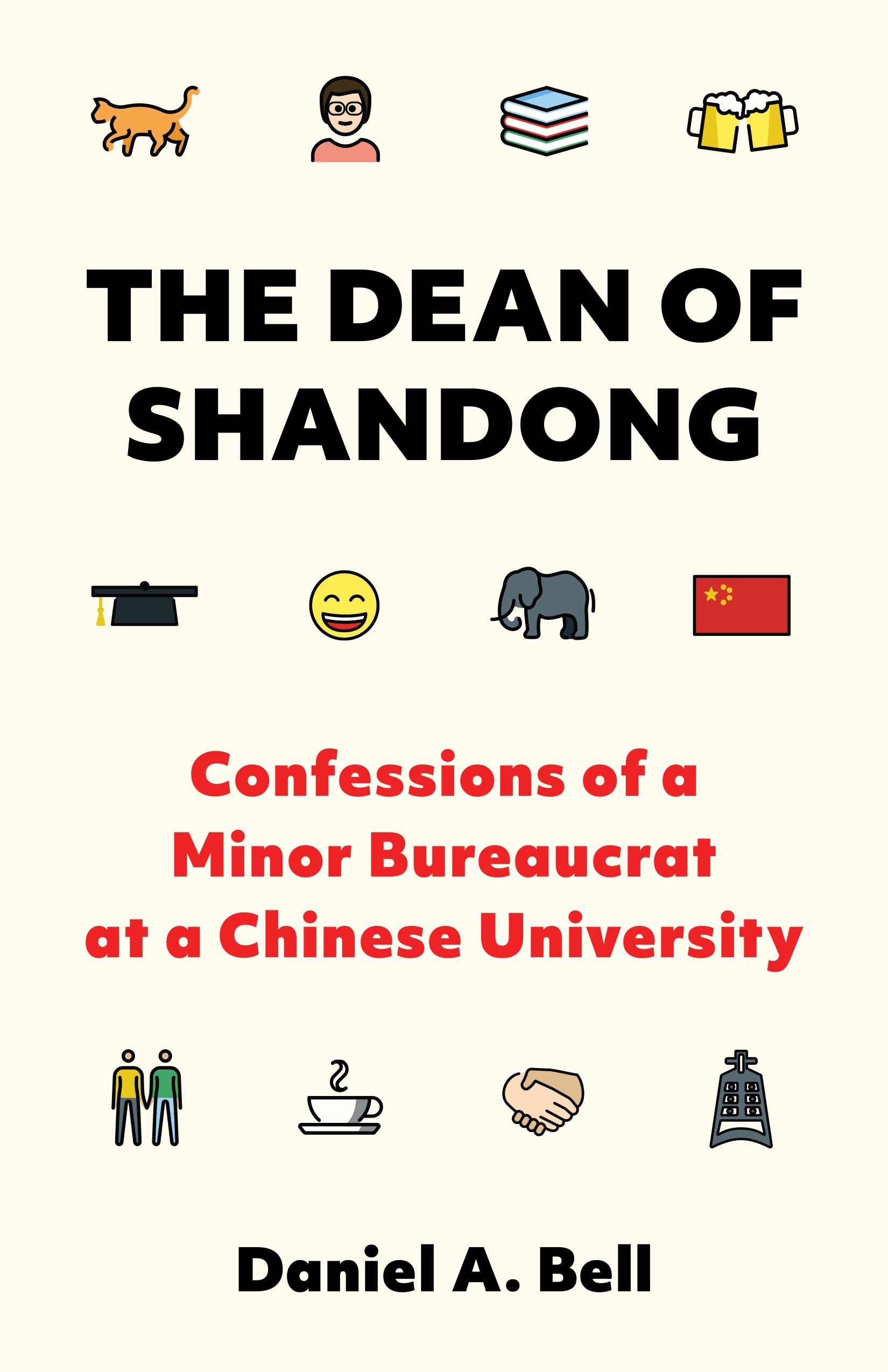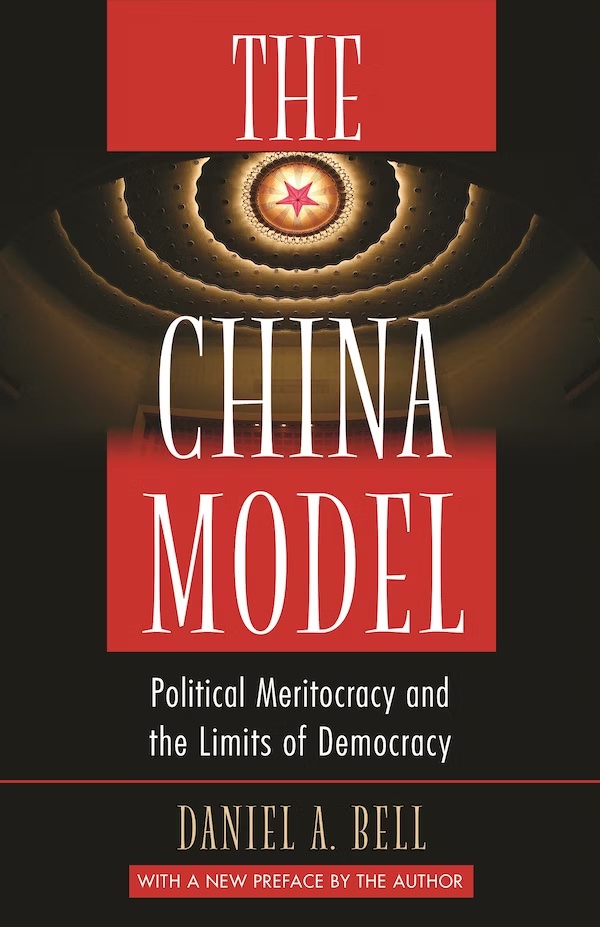Reviewed: The Dean of Shandong, Daniel A. Bell (Princeton University Press, 2023)
Access has long been an issue for Western China analysts and writers. Obtaining proper visas; gaining entry to archives; doing fieldwork; making sure local colleagues don’t get in trouble for cavorting with foreigners. These are problems we have faced since the beginning of the reform period in the late 1970s. Many academics have, at some point and in some manner, self-censored — holding back their true opinions so as to not jeopardize current or future research. It’s a delicate balance of maintaining intellectual integrity while doing meaningful work.
Daniel A. Bell, a Canadian political theorist, achieved more access than just about any other foreign academic. As he states in his new book, The Dean of Shandong, he was “the first foreign dean of a political science faculty in mainland China’s history.” This position at Shandong University in Qingdao, which he held from 2017 to 2022, gave him an extraordinary opportunity to not only observe the inner workings of a significant institution but also, possibly, to influence the operations of a Chinese university. His story, however, is laced with disappointment. He admits he failed to achieve the goals he had set for himself and was reduced to enacting shallow symbolic rituals, playing the “faculty panda.” Along the way, he also inadvertently demonstrates the intellectual cost of such exceptional access.
Bell is well known among China analysts. He has written extensively on the contemporary resurgence of Confucianism in mainland China. His perspective is shaped by his disaffection with Western democratic theory and practice. His first book, Communitarianism and its Critics (1993), is an extended critique of liberalism, rooted in Western political thought with virtually no reference to Confucianism and little engagement with China. A subsequent stint on the faculty at the National University of Singapore brought him into direct contact with scholars of Chinese philosophy. That turned him toward Confucianism as a non-liberal ideal for better public policy and politics in both China and, potentially, the West. “Ideal” is important here, because when he encounters criticism from other China specialists — which is often — he falls back on the claim that he is merely describing ideals that are far from what really transpires in China. But we are getting ahead of ourselves.
Several of Bell’s earlier assertions have garnered widespread refutation, especially from political scientists. In 2010, in an op-ed for the Toronto Globe and Mail he advanced the idea that the Chinese Communist Party (CCP) might someday change its name to the Chinese Confucian Party. While this might seem tongue-in-cheek, it reflected his persistent belief in the “Confucianization of the party,” which has fallen short of his expectations. In his 2015 book The China Model: Political Meritocracy and the Limits of Democracy, he described the Chinese system as: “democracy at the bottom, experimentation in the middle, and meritocracy at the top.” Although policy experimentation has certainly been a hallmark of the post-Mao political economy, the other two claims have been roundly rejected by political analysts. Highly constricted local elections do not make for democracy; Confucian meritocracy does not determine top level personnel decisions. Andrew Nathan, Professor of Political Science at Columbia University, noted in a review of The China Model that it “will mislead any reader who looks to it for an understanding of China.”

Certainly, over the course of a long academic career and many peer-reviewed academic publications, Bell has made reasonable and durable intellectual contributions. His reputation among fellow foreign China analysts, however, has been shaped by an overriding bias in favor of Chinese authoritarianism — as noted in a scholarly article by Yushun Huang, ‘A Critical Discussion of Daniel A. Bell’s Political Meritocracy.’
This bias suffuses The Dean of Shandong. To return to the question of access: how is it he was able to become the first foreign dean of a Chinese political science faculty? He states that his commitment to Confucianism was likely an important factor. No doubt. What goes unmentioned is that he had also proven himself to be politically safe, a defender of the system. The arguments he makes about “ideal” meritocracy and democracy are helpful to those maintaining a real system of political control and repression. This is something more than the occasional tactical self-censorship academics sometimes have to do; it is an affirmative justification for single Party dictatorship.
Bell is, of course, aware of the repression of political pluralism at the core of Chinese politics, but he chooses to downplay it and hope for the best. So, he observes: “The mass incarceration of Uyghurs in Xinjiang seems like a gross overreaction to the threat of terrorism and religious extremism”. With an off-hand “seems like,” the detention of approximately one million people and the systematic suppression of religious and cultural life is waved away. He suggests that the position of Party Secretary in the university should be retitled “Harmony Secretary,” because so much of the work is about “smoothing out social conflicts and promoting an atmosphere of ‘diversity in harmony’ on campus”. Something like camp counselors. In this, he appears to be unacquainted with the significant line of research, by Elizabeth Perry and others, demonstrating how the CCP has used “emotion work” and “affective governance” to stifle dissent and impose political control.
The arguments he makes about ‘ideal’ meritocracy and democracy are helpful to those maintaining a real system of political control and repression.
A whole chapter is given over to the “The Communist Comeback,” which assumes the CCP had been moving away from Marxist ideology and toward Confucianism, leading to his surprise at the force of Xi Jinping’s invocation of Marxist-Leninist dogma. Although it is true, as he notes, that Marxism seemed “dead as a motivating value system” for many Chinese citizens, the Party has consistently held fast to socialist precepts, as a brief review of both State and Party constitutions would attest. The use of blunt restrictions on political speech and activity might have ebbed at various times in the post-Mao era, but Marxism never really went away. So Bell’s dismay at its rhetorical resurgence falls flat. His earlier belief in the ascendance of Confucianism within the political system was overblown — even if the Sage has recently been trotted out in a bizarre video encounter with Marx himself.
Bell’s resistance to recognizing the full extent of Party power and Marxist ideology yields what is perhaps the most cringeworthy moment in the book. He describes how he attended a meeting of fellow deans at Shandong University. In their public remarks all the others began with encomiums to “the party’s leadership and the socialist vision.” When it came to his turn he played along, saying that, though he was not a party member he supported “the communist ideal.” He was surprised when he received “sustained and sincere applause” and was “specifically commended for that part of the speech.”
Scholars of authoritarian regimes have long contended that what makes ideological control effective is not so much the words that might be uttered, but the performative speech act in and of itself. The scholar Lisa Weeden, in her perceptive analysis of Syria’s Hafez al-Assad regime, Ambiguities of Domination (1999), describes a “politics of pretense” where individuals looking to survive in a repressive political context parrot the ideology of the moment to enact their loyalty and compliance. Just as during the Cultural Revolution, enforcement of discursive performance is a demonstration of the regime’s power.
Bell does not see this. He performs allegiance because he is preoccupied with his hopes for Confucianism, and his continued search for political alternatives to liberalism. The latter fixation is revealed in the chapter that attempts to diffuse criticism of censorship. He writes: “Chinese-style democratic-meritocracy — an ideal that (highly imperfectly) informs political reality — is the only viable alternative to liberal democracy in the modern world.” He does not deploy this sentiment as an excuse for political control of academia, which he recognizes — indeed he notes that his own work has been censored in China. It seems, rather, a catechism of sorts: a principle invoked to ward off unforgiving critiques of Chinese authoritarianism.
That, after all, is Bell’s self-described political agenda: to counter the demonization of China and the CCP. He is honest and straightforward in admitting this. He also candidly shares several potentially embarrassing personal stories in this memoir: a drunk driving conviction; an allegation of plagiarism; a divorce. But he is unwilling to step outside his political frame of reference for the purpose of thorough inquiry.
Ultimately, he falls back on hope. He hopes that Xi Jinping will allow more open deliberation at the highest levels of the regime; he looks forward to being pleasantly surprised at future improvements in freedom of expression; he is optimistic that political intervention in academic research and publication will subside. But hope is not a sound basis of political analysis. Although he had the opportunity of extraordinary access, Bell’s ideological commitments and idealism have kept him from meaningfully adding to our understanding of Chinese politics. ∎
Header: Bell receiving the Huilin Prize at the Academy for International Communication of Chinese Culture in 2018.

Sam Crane teaches contemporary Chinese politics and ancient Chinese philosophy at Williams College. His publications include Life, Liberty, and the Pursuit of Dao: Ancient Chinese Thought in Modern American Life, and “The Problem of Power in Confucian Political Thought” (Comparative Political Theory 1, 2021).



